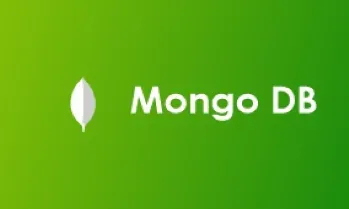
Mongo DB
Online MongoDB Course with Certification and Training in Bangalore.
The Online MongoDB Course with Certification is designed to provide participants with a comprehensive understanding of MongoDB, a leading NoSQL database management system. Known for its flexibility, scalability, and high performance in handling large volumes of data and complex queries, this MongoDB training in Bangalore covers fundamental concepts, features, and best practices for building robust, data-driven applications.
1. Develop skills to manage and interact with NoSQL databases effectively.
2. Understand the core concepts and tools associated with MongoDB.
3. Learn best practices for designing and optimizing MongoDB databases.Learn software skills with real experts, either in live classes with videos or without videos, whichever suits you best.
Description
This course begins with an introduction to MongoDB, including its architecture, data model, and core components. Participants will learn how to use MongoDB for data storage, retrieval, and management. The course covers key topics such as CRUD operations, indexing, aggregation, and data modeling. Advanced topics like replication, sharding, and performance optimization will also be explored through practical examples and hands-on projects.1. Gain practical experience with MongoDB's CRUD operations and querying.
2. Build data models that efficiently support application requirements.
3. Explore MongoDB's features for scaling and high availability.Course Objectives
The primary objectives of the MongoDB course are as follows:1. Introduction to MongoDB: Provide an overview of MongoDB, its architecture, and the advantages of using NoSQL databases.
2. Data Model: Explore MongoDB's document-oriented data model and its advantages over traditional relational databases.
3. CRUD Operations: Learn how to create, read, update, and delete data in MongoDB using various methods and tools.
4. Querying: Understand MongoDB's query language and techniques for efficient data retrieval.
5. Indexing: Cover indexing strategies to improve query performance and ensure efficient data access.
6. Aggregation: Introduce MongoDB's aggregation framework for performing complex data transformations and analysis.
7. Data Modeling: Learn best practices for designing data models that align with application requirements and optimize performance.
8. Replication: Explore MongoDB's replication features for data redundancy and high availability.
9. Sharding: Understand MongoDB's sharding capabilities for distributing data across multiple servers and handling large datasets.
10. Performance Optimization: Learn techniques for optimizing MongoDB performance, including indexing, query optimization, and resource management.
11. Backup and Recovery: Cover strategies for backing up and restoring MongoDB data to ensure data integrity and availability.
12. Deployment: Discuss best practices for deploying MongoDB in various environments, including cloud-based and on-premises setups.Prerequisites
1. Basic understanding of databases and data management concepts.
2. Familiarity with programming concepts and at least one programming language.
3. Knowledge of JSON and data serialization.
4. Understanding of basic SQL concepts (optional but beneficial).
5. Experience with command line tools and database clients.
6. Prior exposure to any database management system (optional but beneficial).Who Can Learn This Course
This course is suitable for a diverse range of individuals, including:1. Database Administrators: Professionals looking to expand their skills in NoSQL databases and MongoDB management.
2. Data Analysts: Individuals interested in leveraging MongoDB for data analysis and reporting.
3. Software Developers: Developers seeking to integrate MongoDB into their applications and improve data handling capabilities.
4. Data Architects: Professionals involved in designing data systems and structures who want to understand MongoDB's data modeling techniques.
5. System Administrators: IT professionals responsible for managing and maintaining database systems.
6. Students and Graduates: Individuals pursuing degrees in computer science or related fields with an interest in modern database technologies.
7. DevOps Engineers: Professionals involved in deployment and operational management of MongoDB instances.
8. Anyone Interested in NoSQL Databases: Enthusiasts looking to explore MongoDB and its applications in various data-driven projects.The MongoDB course is designed to cater to both beginners and individuals with some database experience, providing a solid foundation in MongoDB concepts and practical skills for managing NoSQL databases.
Course Curriclum
Training Features
Comprehensive Curriculum
Master web development with a full-stack curriculum covering front-end, back-end, databases, and more.
Hands-On Projects
Apply skills to real-world projects for practical experience and enhanced learning.
Expert Instructors
Learn from industry experts for insights and guidance in full-stack development.
Job Placement Assistance
Access job placement assistance for career support and employer connections.
Certification upon Completion
Receive a recognized certification validating your full-stack development skills.
24/7 Support
Access round-the-clock support for immediate assistance, ensuring a seamless learning journey.
Upcoming Batches
Placed Students
Enroll now and join our alumni.
Explore More Courses
Enroll for : Mongo DB
Start Date: 2024-10-01
Mentor: Working Professional
Duration: 3 Months
